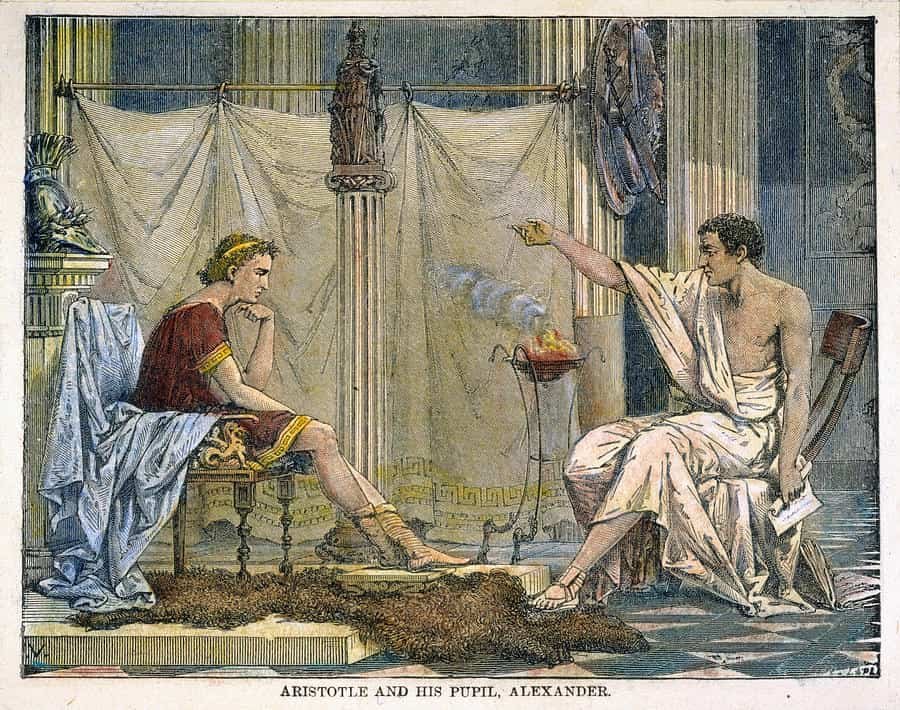The Problem with Atheism
Atheism at its most basic is founded on a denial of reality: It denies the existence of an intelligent designer and an omnipotent upholder in favor of the notion that everything in existence accidentally appeared from nothing, and that it is all somehow held in balance. This tenet is actually far more illogical and fairy-tale-like than theism. It’s comparable to believing that if you empty a cup of marbles onto a completely flat surface they will somehow organize themselves into discrete patterns and systems. You could conduct that experiment continuously for the rest of your life and the outcome predicted by atheism would never occur. Scientist Karl Ernst von Baer (embryologist, naturalist, biologist, geologist) wrote in 1876 in On the Purpose of Nature: “Chance is unable to create anything enduring, rather it is only capable of destruction.”
So how is it more scientific, more rational, to assume that the entire universe and everything it comprises was formed by random accident? Georges Lemaître, Belgian cosmologist and father of the Big Bang theory—which is often cited as an alternative to intelligent design—was a Catholic priest, but that fact is often overlooked in science class. Traditionally, scientists have approached their field of study from a theistic perspective, seeking to understand and explain the laws of nature as established by God, rather than to discredit his existence. But much of that is ignored today, with many modern-day scientists positing that God and science are incompatible.
And this is nothing new. In the late 19th century British depopulationists Thomas Malthaus and Thomas Huxley founded the X-Club and Nature magazine (which is still highly esteemed within the scientific community) as part of a deliberate effort to promote Darwinism over creationism, creating a false dichotomy between the two. They held public debates, inviting rather unschooled members of the Church of England to represent the perspective of creationism, pitted against the articulate Huxley as Darwin’s spokesperson, and urged people to choose between the two ideologies instead of acknowledging the fact that they are not mutually exclusive—that intelligent design integrates elements of both. You might ask why Huxley, Malthaus, and other X-Club members pushed this secularist agenda. Historian and author Matthew Ehret offers this in response: “If you can get people to become more selfish and self-centered, they are more easily herdable.”
Ironically, science has now become something of a substitute religion for the non-religious—“I believe in science” being the catch phrase, and the tyranny of religious dogma has been replaced by a rigid intolerance for any questioning of cherry-picked scientific theories. This squelching of innovative thought has contributed to the suppression of scientific discovery and ultimately to the detriment of humanity. It’s even more unconscionable when people choose to dismiss well established science because it doesn’t support their agenda. This was recently evidenced when highly reputable physicians who offered effective, off-patent medications to treat Covid patients were ridiculed, de-platformed, and even stripped of their medical licenses. Nobel prize winning Ivermectin was branded as a horse dewormer by the mainstream media, fueled (perhaps even bribed) by the so-called experts who knew better, but preferred to push the experimental mRNA treatments they had invested billions of dollars in.
Denial of reality and true science has manifested in other absurdities: Children are allowed to pretend to be animals, forcing their schools to let them use litter boxes instead of toilets! Biological men identify as women and compete against them, often physically harming their opponents with their inherently male superior strength. Children not yet old enough to drive, vote, or drink alcohol legally are allowed to mutilate and sterilize themselves because they don’t feel comfortable (probably temporarily) with their biological sex. People reject universal truth for their truth, but that results in countless different versions of “truth.” As a result, we live in a world of make-believe, where anything goes. When people are allowed to indulge in whatever they want and call it truth, there’s little, if any real common ground upon which to build societal progress. It seems the only thing holding those people together is their shared hatred for others who do agree upon universal, if not divine, truths.
Atheists often assert that they can live moral lives without God or religion, but most are ignorant of the fact that their humanistic values were derived from Judeo-Christianity, namely the Golden Rule, as taught by Jesus of Nazareth: Love one another as I have loved you. Without these values brought forth and underscored by religion, society would quickly revert back to barbarism. Thankfully, despite the atheistic, secular revolt in modern culture, true religion persists and has managed to uphold much of what is good, even great, in society. Consider whether Martin Luther King, Jr. would have been able to effect positive change if he had not appealed to the better side of men and their God-consciousness when he proclaimed, “And when this happens, when we allow freedom ring, when we let it ring from every village and every hamlet, from every state and every city, we will be able to speed up that day when all of God's children, black men and white men, Jews and Gentiles, Protestants and Catholics, will be able to join hands and sing in the words of the old Negro spiritual: Free at last! Free at last! Thank God Almighty, we are free at last!”
